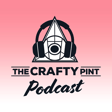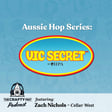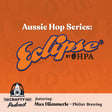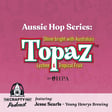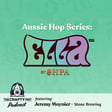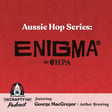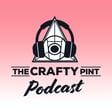
From Teaching History To Brewing It
There are few brewers anywhere in Australia with a pedigree to match that of Shawn Sherlock. For the past decade, he's been at the helm of FogHorn Brewery in Newcastle; prior to that he was at Murray's Brewing, helping the business grow from its roots in the Pub With No Beer in Taylors Arm (population: 133) to one of the country's envelope-pushing craft beer pioneers selling 1.5m litres per year at the time he moved on.
Even before that – when he was lecturing courses in Australian history in his hometown of Newcastle – he was an avid homebrewer; indeed, we can probably thank the Howard administration's swingeing cuts to Arts funding for kickstarting one of the finest brewing careers of the modern era.
As we were preparing to launch The Crafty Pint Podcast, Shawn was taking full control of FogHorn from Mighty Craft, the "craft beer accelerator" no longer involved in craft beer, which had bought into the business when his original partner was moving on. It meant we were keen to bring him onto the show to chat about his experiences working within different brewery ownership models – which he does.
That he is on the show this week is also in part due to his role in the creation of Brewcastle, an ale trail guide to Newcastle's best beer (and spirits) spots; FogHorn was the first new brewery to open in the city a decade ago and has since been joined by many others.
Over the course of the episode, we trace his career from its very start through the creation of many beers that were ahead of their time to his position today as a much-respected figure in the local beer community. He offers thoughts on the sort of business models that can succeed, what matters if you want to survive in brewing, and even gives some insight into creating great stouts, something he knows plenty about – he's got a few trophies as proof.
14:05 Start of the conversation with Shawn.
In the intro, we discuss a number of this week's stories and new beer releases; below are all relevant links:
Range open Rays in Camp Hill: https://craftypint.com/news/3596/range-open-a-second-suburban-bar-rays-in-camp-hill
Slipstream Social House opens on the Sunshine Coast: https://craftypint.com/event/13484/slipstream-social-house-opening-party
Doglands to open in Melbourne's Docklands: https://craftypint.com/news/3597/moon-dog-to-open-doglands-next-to-marvel-stadium-in-coming-days
Copper & Oak win WA Liquor Retailer of the Year: https://www.facebook.com/copperandoak/posts/pfbid02JDqmLAJn1Zs1CNoj3SqfsZjqE9Zuy6tVz9WjgavvrWkAiWZQkkkLRepq9R4hCeUNl
Black Arts to close: https://craftypint.com/news/3598/black-arts-brewers-and-blenders-to-close
Brew & A: Ted Carey: https://craftypint.com/news/3594/brew-and-a-ted-carey
Aussie Exports: Emma Elmslie: https://craftypint.com/news/3600/aussie-exports-emma-elmslie-shining-peak-nz
Green Gully Brett There Be Rock: https://craftypint.com/beer/10999/green-gully-island-beer-teri-grisette-24-and-brett-there-be-rock
Newcastle Becomes Brewcastle: https://craftypint.com/news/3599/newcastle-becomes-brewcastle-with-launch-of-new-ale-trail
Shawn takes full control of FogHorn: https://craftypint.com/news/3472/foghorn-founder-takes-full-control-of-brewery-as-mighty-craft-exit-craft
The creation of the Auld Bulgin' Boysterous Bicep: https://craftypint.com/news/423/never-mind-the-molluscs
To register for a WSET course with a 10% discount: https://craftypint.com/wset-beer-qualifications--australia
To find out more about supporting the show or otherwise partnering with The Crafty Pint, contact craig@craftypint.com.
